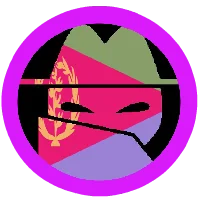Honour killing story
Born: 1982
Shot dead: 7 February 2005
Residence: Berlin
Origin: Turkey / Kurds
Children: 1 son, Can (born 1999)
Perpetrator: Ayhan, her youngest brother, Kurdish, 18 years old at the time of the crime, born in Germany
At the age of 15, Hatun Sürücü is married off to a cousin in Turkey by her Kurdish family, who live in Berlin. Two years later she divorces and returns to Berlin pregnant. She takes off her headscarf, finishes school and attends a technical college. And she raises her son Can until her youngest brother shoots her at a bus stop in Berlin-Tempelhof.
Soon after, the shooter makes a confession. It must become clear in court whether he had accomplices. The killer's ex-girlfriend - who is now in the witness protection program and living at a secret address - testifies that the order to kill came from the family clan.
The youngest was chosen as the shooter because he is still under the juvenile justice system (the juvenile justice system can still be applied to offenders between the ages of 18 and 21). One of the brothers delivered the gun.
In the first instance, the judge did not find the statement of this witness credible and acquitted the two older brothers Mütlü and Alpaslan. However, the 5th Criminal Chamber of the Federal Court in Leipzig overturns the acquittals in August 2007. In November 2007, the Berlin prosecutor's office requested arrest warrants against the two. But the brothers have been in Turkey ever since.
The murder of Hatun Sürücü is so far the best known honor killing in Germany. It triggered the debate on honor killings, forced marriages and parallel societies.
A file by the Süddeutsche Zeitung on the topic of honor killings highlights another aspect of the case. In court, several witnesses report sexual abuse in Hatun's family. Which of the brothers would have abused her is unclear, Mutlu and Alpaslan are mentioned. The whole family is said to have known about it. If this is true, it could be another motive for the murder. Because that would also end this disgrace. In fundamentalist Muslim circles, it is not the perpetrator but the victim who is punished for sexual abuse. For it is the woman who has had extramarital sex.
In the summer of 2011, a very well-documented book on the case is published: "Honour Revenge: a German Fate"
In July 2013, the Berlin prosecutor's office transfers its investigation files to the Turkish authorities. It is possible that the two older brothers' involvement in the crime will be proven after all. In July 2014, the convicted brother Ayhan is released from prison and extradited to Turkey. In the summer of 2015, the Turkish prosecutor's office filed charges against the two older brothers.
The prosecutor's office in Istanbul files charges in 2015, and in early 2016 the brothers are again in court. For about a year, nothing happens in the trial, but Turkey changes after the alleged coup in the summer of 2016. The prosecutor is replaced. The ban on the accused brothers leaving the country is lifted. Theoretically, they can return to Germany and take revenge on those involved in the trial.
Not necessarily surprising, the brothers are acquitted in May 2017. But in August it is said that the prosecutor has appealed the verdict.
An appeal by Turkey's Ministry of Family was upheld in February 2018. Reportedly, the trial will be reopened. The Berlin Senate announces it will name a bridge in Neukölln after Hatun Sürücü.
|
What is an honour killing? |
|
An honour killing is a murder in the name of honour. If a brother murders his sister to restore family honour, it is an honour killing. According to activists, the most common reasons for honour killings are as the victim:
Human rights activists believe that 100,000 honour killings are carried out every year, most of which are not reported to the authorities and some are even deliberately covered up by the authorities themselves, for example because the perpetrators are good friends with local policemen, officials or politicians. Violence against girls and women remains a serious problem in Pakistan, India, Afghanistan, Iraq, Syria, Iran, Serbia and Turkey. |
Latest posts
-
Femicide in Kermanshah, Iran: Young Woman Murdered by Her Ex-Husband
-
16-year-old girl murdered by father over TikTok account in Rawat, Pakistan
-
Man (35) Sets His Ex-Wife (41) on Fire in Helchteren, Belgium
-
Did the Zeist police cover up an Islamic honour killing? 240 testimonies suggest they did
-
Honor Killing in Golestan, Iran: Mobina Kandabi Murdered by Her Husband
-
Femicide in Amsterdam: 30-Year-Old Dragana Stabbed to Death by Her Ex-Partner
-
Honor Killing in The Hague, Netherlands: Twelve-Year Prison Sentences for Two Perpetrators
-
Honor Killing in Khoy, Iran: Setareh Moesipoor Shot Dead by Her Brother-in-Law
-
Femicide in Iran: New Report Reveals Alarming Rise in 2024
-
Femicide in Eslamshahr, Iran: 18-year-old Fatemeh Soltani murdered by her father




















































